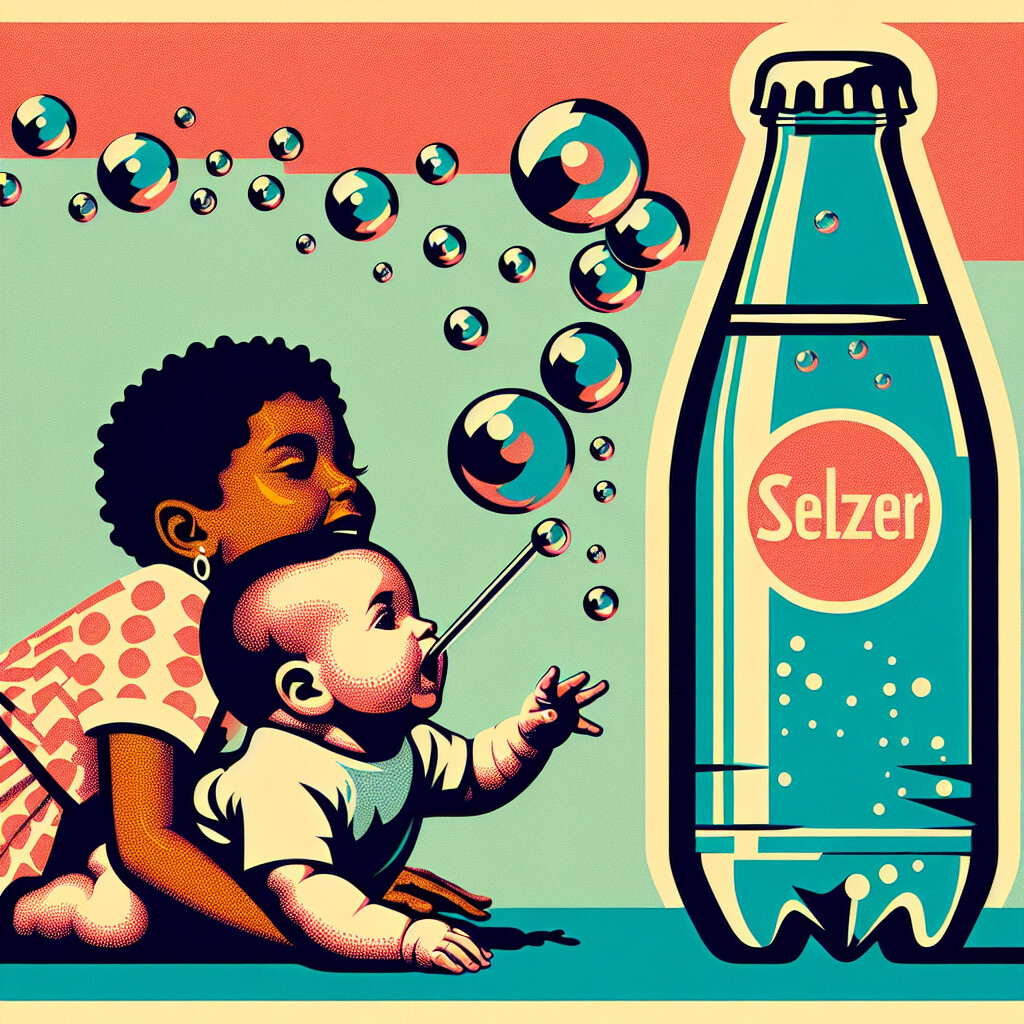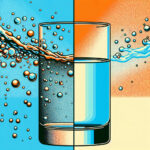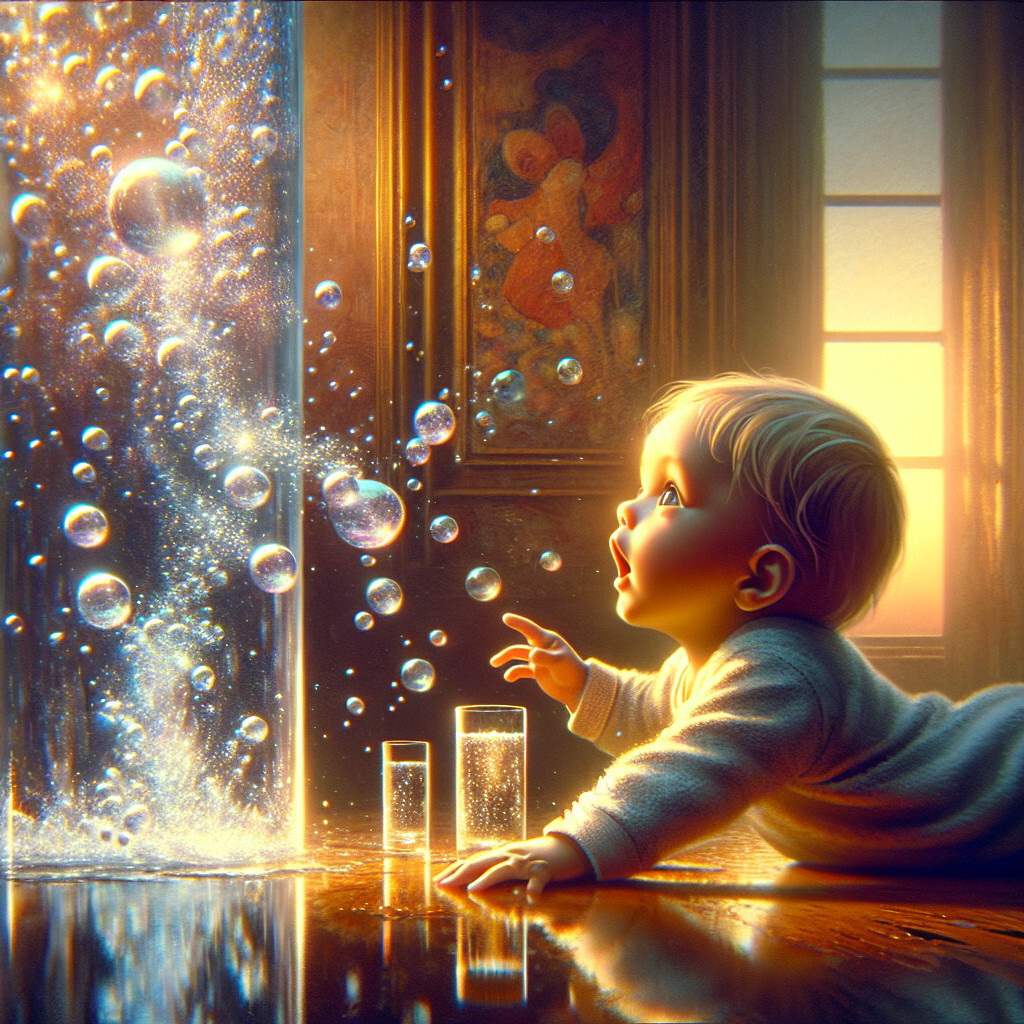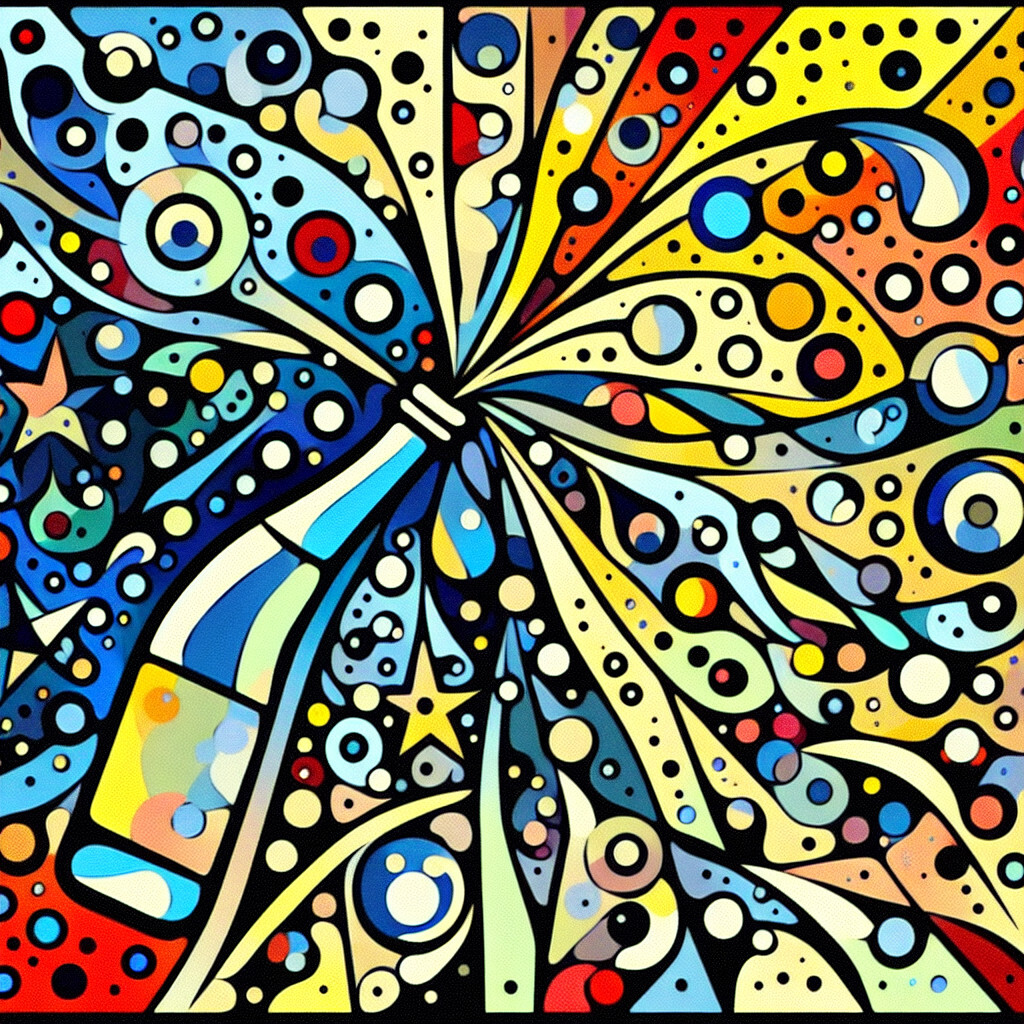-
Table of Contents
“Seltzer Water: For Your Baby’s Bubbly Moments!”
Introduction

Seltzer water, also known as sparkling water, is a carbonated beverage that is often consumed as a refreshing alternative to still water. It is made by infusing water with carbon dioxide under pressure, which creates the characteristic bubbles. When it comes to babies, it’s important to note that while seltzer water is generally safe for adults and older children, it may not be suitable for infants or young babies. This is because the carbonation can cause discomfort and bloating, and the bubbles can lead to choking hazards. Additionally, some types of seltzer water may contain added flavors or sweeteners that aren’t recommended for babies. Therefore, it’s generally advised to stick to breast milk, formula, or plain water for babies under the age of one.
Understanding the Effects of Seltzer Water on Babies
Seltzer water, also known as carbonated water, is a popular beverage choice among adults due to its refreshing taste and the fact that it is calorie-free. However, when it comes to babies, parents often wonder whether it is safe to introduce seltzer water into their diet. This article aims to shed light on the effects of seltzer water on babies, providing a comprehensive understanding of its potential impacts.
Firstly, it is important to understand what seltzer water is. It is simply water into which carbon dioxide gas has been dissolved under pressure, resulting in a fizzy drink. It does not contain any added sugars, salts, or artificial flavors, making it a healthier alternative to sugary soft drinks. However, the question remains: is it suitable for babies?
The American Academy of Pediatrics (AAP) recommends that babies under the age of six months should only consume breast milk or formula, as these provide all the necessary nutrients for their growth and development. Introducing other beverages, including seltzer water, at this stage could potentially interfere with their nutritional intake.
As babies grow older and start consuming solid foods, parents may consider introducing other beverages. However, it is crucial to note that the carbonation in seltzer water can cause discomfort in babies. The bubbles that make seltzer water fizzy can lead to bloating, gas, and an upset stomach in babies, who have a sensitive digestive system. Moreover, the acidity in carbonated beverages can potentially harm a baby’s developing teeth.
Furthermore, while seltzer water is free of sugars and artificial flavors, it is not devoid of taste. Some babies might develop a preference for its unique taste, which could make it more challenging to get them to drink plain water. This could potentially lead to hydration issues, as babies might refuse to drink non-carbonated water.
On the other hand, it is worth noting that seltzer water is not harmful in small amounts for older babies and toddlers, especially if it is used as a transitional beverage to wean them off sugary drinks. However, it should not replace regular water in their diet.
In conclusion, while seltzer water is not inherently harmful to babies, it is not the best choice of beverage for them due to potential digestive discomfort and the risk of developing a preference for carbonated beverages over plain water. The AAP recommends that water and milk should be the primary beverages for children over the age of one, with juice and other beverages being limited. As always, when it comes to introducing new foods or beverages to your baby’s diet, it is best to consult with a pediatrician or a registered dietitian. They can provide personalized advice based on your baby’s age, health, and nutritional needs.
In essence, while seltzer water may be a refreshing and healthier alternative to sugary drinks for adults, it is not the most suitable choice for babies. Parents should prioritize breast milk or formula for infants, and plain water and milk for older babies and toddlers, to ensure optimal growth and development.
Can Babies Drink Seltzer Water? A Comprehensive Guide
Seltzer water, also known as sparkling water, has gained significant popularity in recent years due to its refreshing taste and the fact that it offers a healthier alternative to sugary sodas. However, when it comes to babies, parents often wonder if it’s safe to introduce seltzer water into their diet. This article aims to provide a comprehensive guide on this topic.
Firstly, it’s important to understand what seltzer water is. It’s simply water that has been carbonated, meaning it contains bubbles. Some brands may add minerals or natural flavors for taste, but pure seltzer water contains no sugars, calories, or caffeine. Despite its seemingly harmless composition, there are several factors to consider before giving seltzer water to a baby.
The primary concern is the carbonation. The bubbles in seltzer water are created by adding carbon dioxide under pressure. When consumed, this can lead to gas and bloating, which can be uncomfortable for adults, let alone babies. Babies have immature digestive systems that are still developing, making them more susceptible to gas, bloating, and discomfort. Therefore, introducing seltzer water could potentially exacerbate these issues.
Moreover, the acidity of seltzer water is another factor to consider. While it doesn’t contain the high sugar levels found in soda, seltzer water is still more acidic than regular water. This acidity can potentially harm a baby’s developing teeth. According to the American Dental Association, frequent exposure to acidic drinks can erode tooth enamel, the hard, outer layer of the teeth that protects against decay. While this is more of a concern for older children with permanent teeth, it’s still worth considering for babies, especially those with newly emerged teeth.
Additionally, while seltzer water may seem like a fun way to encourage hydration, it should not replace regular water or breast milk/formula in a baby’s diet. Babies under six months old should only consume breast milk or formula, as these provide the necessary nutrients for growth and development. For babies over six months, small amounts of water can be introduced, but breast milk or formula should still make up the majority of their liquid intake.
In conclusion, while seltzer water is not inherently harmful, it’s not the best choice for babies due to potential digestive discomfort and its acidic nature. It’s always best to consult with a pediatrician before introducing any new foods or drinks into a baby’s diet. They can provide personalized advice based on the baby’s age, development, and overall health.
Remember, every baby is unique and what works for one might not work for another. As parents, it’s our responsibility to make informed decisions about our children’s nutrition. While seltzer water might be a refreshing change for adults, for babies, sticking to breast milk, formula, and small amounts of regular water is the safest and most beneficial choice.
The Pros and Cons of Introducing Seltzer Water to Your Baby’s Diet
Seltzer water, also known as sparkling water, has gained popularity in recent years as a refreshing, calorie-free alternative to sugary drinks. However, when it comes to introducing seltzer water to your baby’s diet, there are several factors to consider. This article will explore the pros and cons of giving seltzer water to babies, providing parents with the necessary information to make an informed decision.
On the positive side, seltzer water is free of sugars and artificial sweeteners, making it a healthier choice than many commercially available beverages. It can also be a fun way to introduce your baby to new tastes and textures, potentially fostering a more adventurous palate as they grow. Furthermore, seltzer water can help to keep your baby hydrated, particularly in hot weather or when they are unwell and may not be eating as much as usual.
However, despite these benefits, there are also several potential drawbacks to introducing seltzer water to your baby’s diet. Firstly, the carbonation in seltzer water can cause gas and bloating, which may lead to discomfort and fussiness in some babies. This is particularly true for babies who are prone to colic or have sensitive digestive systems.
Secondly, while seltzer water is a healthier choice than sugary drinks, it should not replace breast milk or formula in your baby’s diet. These provide essential nutrients that your baby needs for growth and development, which seltzer water does not contain. Therefore, if you choose to introduce seltzer water, it should be in addition to, not instead of, their regular milk feeds.
Thirdly, the acidity in seltzer water can potentially harm your baby’s developing teeth. While the levels of acid are generally lower than in soft drinks, regular consumption can still contribute to tooth decay. This is especially concerning for babies, whose teeth are more susceptible to damage.
Lastly, it’s important to note that not all seltzer waters are created equal. Some brands add sodium, artificial sweeteners, or flavorings to their products, which can be harmful to your baby. Therefore, if you decide to give your baby seltzer water, it’s crucial to choose a brand that is free of these additives.
In conclusion, while seltzer water can be a fun and refreshing addition to your baby’s diet, it’s important to introduce it with caution. Consider your baby’s individual needs and sensitivities, and always prioritize breast milk or formula. If you’re unsure about whether to introduce seltzer water, or any new food or drink, to your baby’s diet, it’s always best to consult with a healthcare professional. They can provide personalized advice based on your baby’s age, health, and developmental stage.
Remember, every baby is unique, and what works for one may not work for another. Therefore, it’s essential to monitor your baby’s reaction and adjust their diet accordingly. With careful consideration and guidance, you can make the best nutritional choices for your baby’s health and wellbeing.
Seltzer Water and Babies: Myths and Facts Uncovered
Seltzer water, also known as sparkling water, has gained significant popularity in recent years. Its refreshing taste and fizzy sensation have made it a favorite among adults. However, when it comes to babies, parents often wonder if it’s safe to introduce seltzer water into their diet. This article aims to uncover the myths and facts surrounding seltzer water and babies.
Firstly, it’s essential to understand what seltzer water is. It’s simply water that has been carbonated, meaning carbon dioxide gas has been dissolved into it under pressure. This process gives the water its characteristic bubbles and fizz. Unlike soda, seltzer water doesn’t contain added sugars or artificial flavors, making it a healthier alternative for those seeking a bubbly beverage.
However, when it comes to babies, the situation is a bit different. Babies have a delicate digestive system that is still developing. The introduction of new substances, such as the carbon dioxide in seltzer water, can potentially disrupt this system. One of the most common concerns is that the bubbles in seltzer water can cause gas and bloating in babies. This can lead to discomfort and fussiness, which is something every parent wants to avoid.
Moreover, the acidity of seltzer water is another point of concern. While it’s not as acidic as soda, seltzer water is more acidic than regular water. This acidity can potentially harm a baby’s teeth, especially if they are frequently exposed to it. Dental experts recommend limiting the consumption of acidic beverages to protect the enamel of the teeth.
Despite these concerns, it’s important to note that occasional sips of seltzer water are unlikely to harm a baby. However, it should not replace regular water or breast milk/formula in a baby’s diet. These are the primary sources of hydration for babies and provide essential nutrients that seltzer water does not.
Furthermore, it’s crucial to remember that every baby is unique. What works for one baby may not work for another. Some babies might enjoy the fizzy sensation of seltzer water, while others might not. As a parent, it’s important to pay attention to your baby’s reactions and preferences.
In conclusion, while seltzer water is not inherently harmful to babies, it’s best to proceed with caution. The potential for gas, bloating, and dental issues make it a less-than-ideal choice for regular consumption. However, occasional sips under parental supervision are generally safe. As always, when introducing any new food or drink into your baby’s diet, it’s best to consult with a pediatrician or a healthcare professional. They can provide personalized advice based on your baby’s health and developmental needs.
In the end, the key is moderation and careful observation. Seltzer water can be a fun and refreshing change for your baby, but it should not become a staple in their diet. By understanding the facts and debunking the myths, parents can make informed decisions about introducing seltzer water to their babies.
Q&A
1. Question: Can babies drink seltzer water?
Answer: No, it’s not recommended for babies to drink seltzer water. It can cause gas and bloating, and it’s not as hydrating as regular water.
2. Question: At what age can a child start drinking seltzer water?
Answer: Generally, it’s safe for children to start drinking seltzer water around the age of 2, but it should be given in moderation.
3. Question: Is seltzer water harmful to a baby’s teeth?
Answer: Yes, seltzer water can be harmful to a baby’s teeth. Even though it’s sugar-free, the carbonation can still erode tooth enamel.
4. Question: Can seltzer water replace regular water in a baby’s diet?
Answer: No, seltzer water should not replace regular water in a baby’s diet. Regular water is the best source of hydration for babies.
Conclusion
In conclusion, while seltzer water is not harmful to babies, it is not recommended due to its carbonation which can cause gas and upset stomach in babies. It also lacks the necessary nutrients found in breast milk, formula, and water that are essential for a baby’s growth and development.





